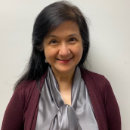September 1, 2023 - August brings memories of key Philippine historical figures Francisco Balagtas, Jose Rizal, and Manuel L. Quezon – all of whom weaponized Tagalog against colonial forces.
Adjudged as the Philippines’ national language for many years, Tagalog has been linked to Francisco Balagtas’ poetry. The language that brought forth Rizal’s analogy of a slimy fish for one’s apathy to Mother Language, Tagalog evolves into every Filipino’s vernacular, i.e., spoken across regional affiliations and colonial pasts. From Tagalog to Pilipino rises the constitutionally recognized and the globally-distinct Filipino as one of the Philippines’ two official languages.
What motivates Filipinos in British Columbia, Canada to keep observing August as the Philippine language month through Balagtasan? [Balagtasan is a form of Filipino debate in verse.] How does Balagtasan mirror the Filipino diaspora?
The ninth Balagtasan that the University of the Philippines Alumni Association in British
Columbia (UPAABC) hosted on August 18, 2023 with the Consulate General of the Philippines
in the city of Surrey yields remembrances of histories, heroes, customs, traditions, mores –ensconced in the unifying languagethat propels a sense of community the Filipino diaspora.
The poet-debaters (Lakambinis Rosette Correa and Mylene Lim) and the judge’s (Lakandiwa
Ahmed Tillah II) cadence-filled text that UPAABC president Bella Balisi Bevilacqua ably penned speaks to Balagtas’ immortal Tagalog.
The connection between the performers and the captive audience renders the language more than powerful and meaningful; it reshapes the Filipinos’ navigation and conquest of the host country’s postcolonial countenance.
Asked how the Balagtasan reflects the Filipino diaspora, Burnaby City Councilor Maita Santiago says, “regardless of country or citizenship, our language remains. Balagtasan captures the many experiences as well as the many conflicts that confront us or our society.”
Theatre director and performance maker Dr. Dennis D. Gupa believes, “Many Filipino events function as mechanisms for identity and community belonging within the promise of multiculturalism. Balagtasan for sure underpins the same function through language formation. But in organizing these Filipino events in Canada, our community must also engage in the process of critical thinking to provoke hard questions: to what extent do these performances become antiquarian and exotic modes of imagining Philippines and how these become an unethical exercise of blinded colonialism in a land that has a long history of colonialism?If we fail to ask ourselves without thinking about decoloniality and Reconciliation, we might fall into the cracks of colonialism, too.”
The danger then of missing out on Balagtasan’s role to question and to critique runs high.
Federal government officer Ahmed Tillah II laments the non-inclusion of Muslim languages among the eight Philippine major languages as cited in Veronica Caparas’ poetry, Wika mo, wika niya, wika ko. Anong wika iyan?
Tillah II, a member of the Muslim nobility, strongly feels that “the Balagtasan reflects both the sentiments of longingness and nostalgia as well as national pride. This is my take in spite of these cultural events being generally of appeal only to the major ethnic groups of the country which I am not part of. This may be for the reason that Filipino Muslim culture is ‘exotic’ and distant for the Christian majority of the country even though the Muslims as part of the FirstNations were in this land first. The original peoples became Muslims by choice unlike the Christians who did so by force.”
Does Tillah II think of Moro as a pejorative term?
Tillah II proudly rejoins, “Moro is now commonly used as a collective term for the 13 Islamic tribes of southern Philippines. The major ones are the Maranao, Maguindanao, Tausug, Sama, and Yakan. I am of the Tausug-Sama tribe.”
Hence, UPAABC’s Balagtasan faces the challenge of revisiting the 1987 Philippine Constitution on the rights of the Indigenous Peoples of the Philippines so it does not “fall into the cracks of colonialism.”



